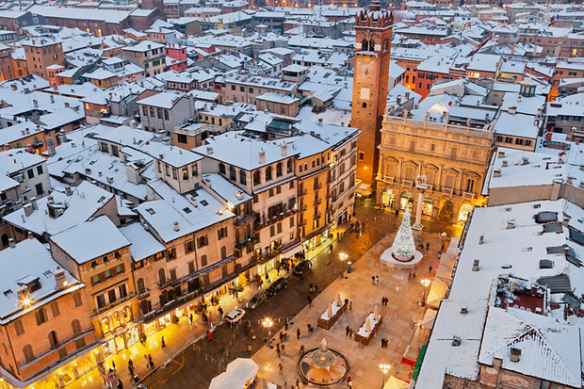Here in France, we’ve been attentively following the “Merah affair” which has dominated media headlines for one month now. In a heightened state of tension, court proceedings opened October 1st and judgment will be passed on Thursday November 2nd. Life imprisonment is sought against Abdelkader Merah for “complicity” in the multiple murders perpetrated by his younger brother, Mohammed, in the March 2012 Toulouse killings.
A brief recap:
On March 19, 2012, 23-year old Mohammed Merah parked his scooter in front of the Jewish high school, Otzar Hatorah, located in a residential area of Toulouse. Armed with a Colt pistol and a mini Uzi-type gun, he opened fire on a group of people gathered in front of the establishment. He killed a teacher, Jonathan Sandler, and his two children, 5-year old Arieh and 3-year old Gabriel. Merah then entered the schoolyard and chased the daughter of the school’s principal around the yard before lodging a bullet in her temple. Myriam Monsonego, aged eight, was left dead on the ground. Four others were wounded. Merah then fled. That same afternoon Merah played football with friends before finishing the evening in a Toulouse nightclub.
The bodies of Jonathan Sandler, Arieh Sandler, Gabriel Sandler and Myriam Monsonego were flown to Israel on March 20, accompanied by French foreign minister Alain Juppé. They were buried at the Har HaMenuchot cemetary in Jerusalem.
Four days earlier, an off-duty paratrooper was shot dead by Merah, point-blank in the head, outside of Toulouse. A second attack by Merah killed two uniformed French soldiers and seriously injured another in a Montauban shopping centre.
§§§
Who was Mohammed Merah?
Born into an Algerian family in Toulouse, France in 1988, Merah had dual French and Algerian nationalities. He perpetrated the killings of seven people, including three Jewish children, in March 2012 in Toulouse. After a 30-hour siege at his Toulouse apartment, he was shot dead by France’s elite police anti-terrorist unit. He was 23 years old.
If you talk to Franco-Arabo-Muslim teenagers today, living in French housing projects all over this country, many will tell you that Mohammed Merah is a hero and a martyr.
Why were the killings carried out on March 19th?
March 19 marks the end of the Algerian war. March 19, 1962. The Algerian War, also known as the Algerian War of Independence or the Algerian Revolution, was a war between France and the Algerian National Liberation Front from 1954 to 1962, which led to Algeria gaining its independence from France.
Who were his parents? What kind of family environment did he grow up in?
Merah’s father, Mohammed Ben-Allal Merah, was born in 1942 in Souagui, Algeria. He arrived in France in 1966. A worker at a metal foundry in France, he had already been divorced twice and fathered seven children when he met Zoulikha Aziri, the mother of Mohammed Merah. They met in the Algerian town of Beni Slimane. They married religiously in 1975 and then, in 1981, Zoulikha Aziri moved to France and settled in Toulouse.

Zoulikha Aziri, the mother of Mohammed Merah
But the marriage fell apart. The couple divorced in 1993 and Mohammed Ben-Allal Merah was sentenced to five years in prison for cannabis trafficking by the Criminal Court of Toulouse. In 2001 he received nine additional months for bribery of witnesses. From 1999 to 2003 he was imprisoned. In 2004 he returned definitively to Algeria. He has since remarried twice.
In 2011, the mother, without a profession, unemployed, and living off social benefits, married Mohamed Essid, a Tunisian and father of the jihadist Sabri Essid, arrested in 2007 at an al-Qaeda safe house in Syria. At a family reunion held three days after Merah’s death, she said, “My son has put France on his knees. I am proud of what he accomplished.” (She and her family are the recipients of France’s generous housing, social and family allowances.) To this day, she is still a recipient.

A proud mother.
What about the other family members?
The sister, Souad, disappeared with her four children, aged 9 months to 14 years, when she left for Syria in May 2014 to join her jihadist husband, Abdelwahed. Souad Merah had embarked on a flight to Turkey before travelling, with her four children, to Gazantiep, a border town with Syria.

the hidden face of Souad, big sister of Mohammed. Also “proud proud proud” of her little brother’s actions
Comment from Juliet in Paris – this blog post is becoming longer than I had originally intended for the simple reason that I think it’s important to gain insight into the background and context of a radicalized, fundamentalist family. It should not be assumed that all Muslim Algerian families are like the Merah family.
Souad was the first of the Merah family to have embraced Salafism in the early 2000s. Since 2008, and well before the attacks perpetrated by her brother, she had been under surveillance by the French Intelligence Agency. After leaving the father of her first two sons, an alcoholic who beat her and who was in and out of prison, she married Abdelwahed religiously in 2010.
In order to learn Arabic and the teachings of the Koran, Souad and her second husband moved to Cairo to begin a course in religious studies. The other brother of Souad, Abdelkader (now on trial for complicity in his younger brother’s assassinations), was already living there with his wife and children. They settled in the El Madina Nasr neighborhood and attended Al-Azhar Islamic University and Salafist schools in Cairo. “It was a magnificent period,” Souad said. “Egypt is a modern Muslim country perfect for Westerners. After school, we spent the afternoon in the air-conditioned malls, it was great.” After her religious conversion and back in France, Souad, now covered with a djelbab (a full veil), considered herself “respected.”
Comment from Juliet in Paris – for those who don’t know the meaning of the words “Salafism”, “Salafi”, “Salafist” or “Wahhabism”, please google them (and get with the program.) I’m sorry, but there’s no excuse today to be naïve and uninformed about the new threat / ideology of the 21st century which is Islamic extremism.
After her younger brother’s killings, she was placed in policy custody for apologie de terrorisme (glorification or justification of terrorism.) Caught on film, she can be heard saying “I am proud of my younger brother’s actions. Proud, proud, proud!!” In the end, Souad Merah admitted to having paid for Mohammed’s plane ticket to Damascus at the end of 2010. She also admitted encouraging him to go to Iraq, Pakistan and then Afghanistan to train with the Taliban. It was decided that she played a determining role in the indoctrination and radicalization of her little brother.
Where is Souad Merah today?
In Algeria. Her jihadist husband, returned to France from Syria, is in prison.
Abdelkader Merah
On trial since October 1st for “complicity in assassination in connection with a terrorist enterprise in the context of the Toulouse attacks”, the verdict will be pronounced tomorrow (Thursday November 2nd.)

Abdelkader Merah is persuaded to have bought “his place in paradise.”
After the Charlie Hebdo attacks, he said to the judge: “I am proud to be a Muslim. I am for an Islamic State with the establishment of a caliphate. What I’m living is to buy my place in paradise, so I will not change.” The judicial investigation shows that he indoctrinated his little brother and was in the shadow of his brother before and after each assassination.
And finally, the last and most surprising member of the Merah clan, the eldest brother, Abdelghani
The only member to publicly denounce the family’s Salafist convictions, Abdelghani is referred to as a “pig” and a “traitor” by his siblings. He wrote a book entitled My brother, the terrorist in which he blames himself for not being able to prevent his brother from committing the irreparable. “I decided to talk, once and for all, and to reveal the strong role my family has had in the Islamist drift of my brother Mohammed.”

Abdelghani Merah
A principal witness in the court case, Abdelghani said this – “The main source of radicalism was my own family. The radicalization of my brothers, Abdelkader and Mohammed, as well as my sister Souad, is the result of the “fertile soil” spread by my parents. Our mother taught us, for example, that “Arabs are born to hate Jews.”
The children were educated “through the hatred of the Jew”. “Home life was a lot of violence, a lot of hate. It was a hotbed, an easy breeding ground conducive to becoming a jihadist or a hater.” he recalls. According to Abdelghani, his parents were members of the FIS (Front Islamique du Salut), an Islamic fundamentalist political party in Algeria, now dissolved. Financed by Saudi Wahhabists, its core objective was to establish an Islamic State ruled by Sharia law.
Today, Thursday November 2, 2017, Abdelkader Merah was sentenced to 20 years behind bars.
Has justice been served? Seven innocent people are dead. Many French citizens want this family expelled from France. They’re still here, still living off of social benefits. People want to know how the family was able to pay the legal fees of Éric Dupond-Moretti, France’s most famous criminal defence lawyer.
There are Orthodox Salafist Muslims who clamor for an Islamic State and Sharia law. They respect the law of Allah and not that of the French state. And yet they’re happy to live like parasites off France’s generous welfare state. There’s something wrong with this system and it needs to be changed.
***

















